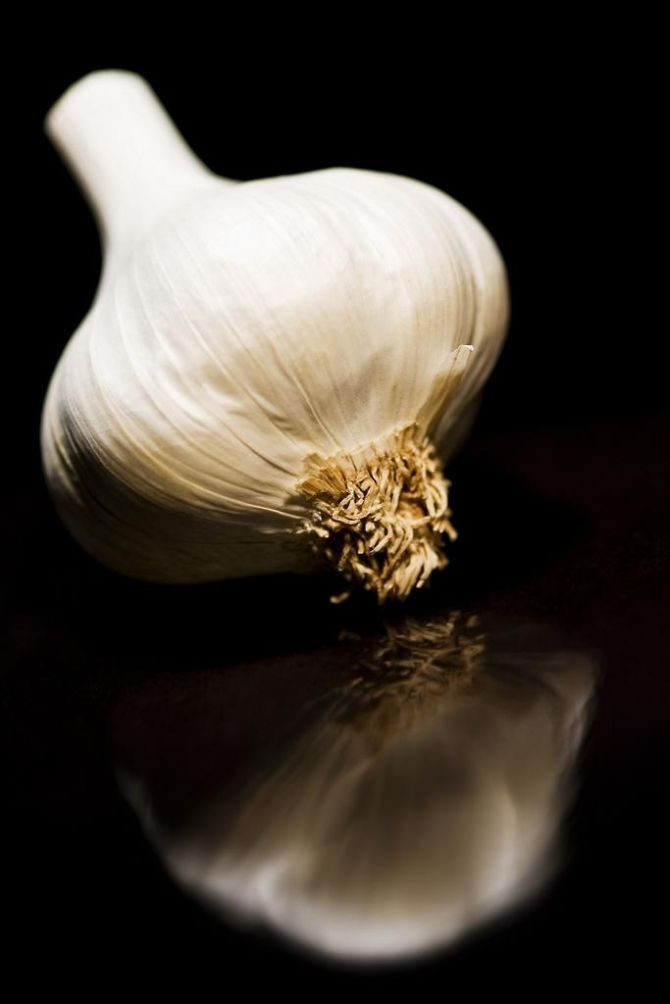Garlic Compound is 100 Times More Effective than Antibiotics for Fighting Bacteria

A compound in garlic is 100 times more powerful than two common types of antibiotics in fighting a type of bacteria that causes food poisoning, according to scientists.
The garlic ingredient called diallyl sulphide works for targeting a specific metabolic enzyme and is especially effective in penetrating the slimy ‘biofilm’ that protects colonies of Campylobacter bacterium that makes the food bug 1,000 times more resistant to antibiotics than bacteria without the film.
The new study, recently published in the Journal of Antimicrobial Chemotherapy, found that not only was diallyl sulfide 100 times more effective than antibiotics erythromycin and ciprofloxacin, the garlic compound was also able to destroy Campylobacter in just a fraction of the time taken by the drugs.
Researchers said that the latest discovery may lead to future treatments for raw and processed meats, and food preparation surfaces, that most bacterial infections stem from.
"This is the first step in developing or thinking about new intervention strategies," researcher Dr. Michael Konkel, from Washington State University, who has been studying Campylobacter jejuni for 25 years, said in a statement.
"Campylobacter is simply the most common bacterial cause of food-borne illness in the United States and probably the world," Konkel said.
Around 2.4 million Americans are affected by the bacteria each year, according to statistics from the U.S. Centers for Disease Control and Prevention, and symptoms include diarrhea, cramping, abdominal pain and fever.
Campylobacter is also responsible for causing nearly a third of cases of Guillain-Barré syndrome, a rare paralyzing disorder.
Most Campylobacter infections are from eating raw or undercooked poultry or foods that have been cross-contaminated through infected surfaces or utensils used to prepare poultry.
Previous studies published in 2011 also showed that the garlic ingredient was also effective against other types of food-borne pathogens, including Listeria monocytogenes and Escherichia coli O157.
Konkel warned that while earing garlic is generally considered a healthy proactive, it was unlikely to prevent Campylobacter food poisoning.
However “diallyl sulfide may be useful in reducing the levels of the Campylobacterin the environment and to clean industrial food processing equipment, as the bacterium is found in a biofilm in both settings," Konkel added.
"Diallyl sulfide could make many foods safer to eat," Co-researcher Dr. Barbara Rasco, another member of the Washington State University team said in a statement. "It can be used to clean food preparation surfaces and as a preservative in packaged foods like potato and pasta salads, coleslaw and deli meats."
"This would not only extend shelf life but it would also reduce the growth of potentially bad bacteria," she added.
Published by Medicaldaily.com



























